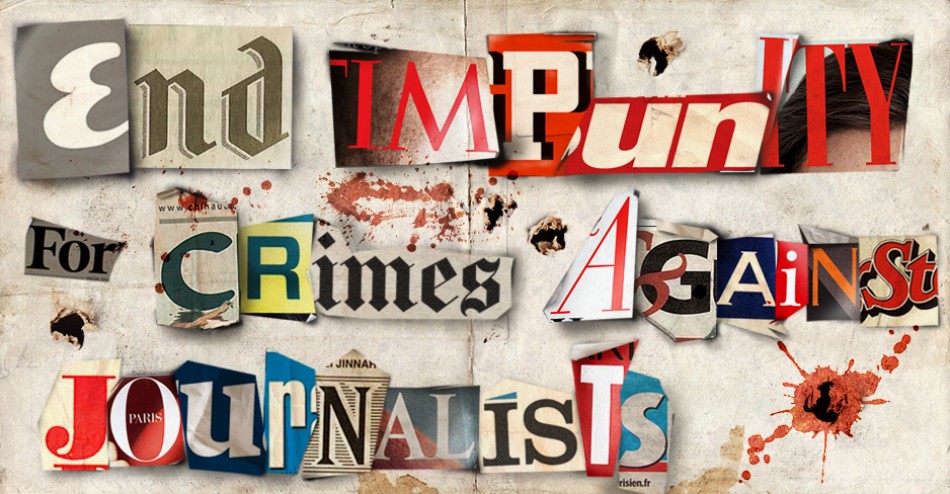“Justice is a cornerstone of a free society. It dissuades those who threaten freedom of expression and emboldens those who stand to defend it,” said Director-General of UNESCO, Irina Bokova. “This is why injustice against journalists is so costly for all societies.” The statement was made on the occasion of the International Day to End Impunity for Crimes Against Journalists, which the UN General Assembly declared to be commemorated on November 2 each year.
Between 2006 and 2016, UNESCO condemned the killing of 930 journalists. Of these, 102 journalists were killed in 2016 alone, according to UNESCO’s latest figures, which appear in the forthcoming World Trends in Freedom of Expression and Media Development: Global Report 2017/2018.
The majority of journalists killed in 2016 (94%) were local journalists, reporting local stories. Half of the killings (50%) occurred in countries where there was no armed conflict, compared to 47% in 2015. Nine in ten cases of killed journalists remain unresolved.
The list of victims does not include journalists who have been kidnapped, arbitrarily detained, tortured, intimidated, or those whose investigating materials were confiscated by the authorities. Digital safety of journalists is also in danger in many cases: many journalists are subject to wiretapping, cyberattacks, and disinformation campaigns.
According to UNESCO’s database, three journalists have been killed in Serbia since 2006: Luka Popov who worked for local radio stations in Čoka and Novi Kneževac, Vojvodina (killed in 2016); Milan Pantić, a reporter for the Belgrade-based daily newspaper Večernje novosti (2001); and Slavko Čuruvija, the founder and editor of the independent daily Dnevni telegraf (1999). In Luka Popov’s case, Serbia’s Ambassador to UNESCO informed the organization that „the perpetrators had been arrested and that they confessed to the crime [… and that …] the murder of Mr. Popov was robbery and not his activities as a radio journalist.”
In the Russian Federation alone, 32 journalists have been killed in the 11-year long period.
Every other year, UNESCO’s Director General must submit a report to the UN General Assembly on crimes against journalists. The next such report is due in 208.



